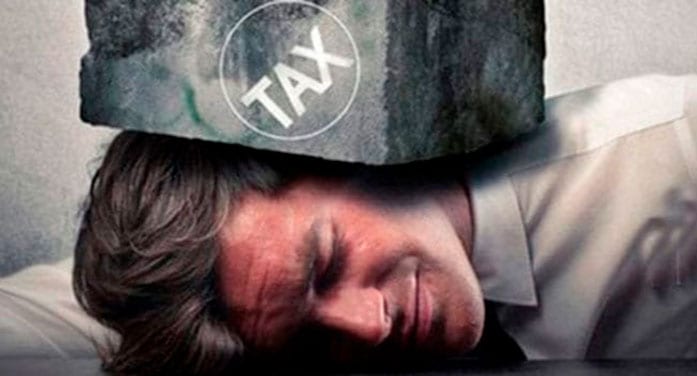By Colin Craig
Secondstreet.org
and Franco Terrazzano
Canadian Taxpayers Federation
In addition to COVID-19, Canada has two major problems we must grapple with: high unemployment and high government spending.
While many families are currently struggling with job losses or lost income, there are signs Canada’s economy could face even more challenges. A recent Canadian Federation of Independent Business survey suggests one in six small businesses are now “seriously contemplating” shutting down for good.
Reading Time: 4 minutes
One solution to help struggling businesses and families would be to cut property taxes. To do that, municipal politicians will need to make tough decisions and reduce spending.
While municipal politicians gasp in horror, the rest of society should note that if municipal governments don’t reduce spending and property taxes, they could potentially stall our economy’s recovery.
Municipal governments are heavily dependent on property taxes for their revenues. A business may see their revenue evaporate before their eyes due to lockdowns, but they could still face a hefty property tax bill. For a gym or restaurant that is barely hanging on, a property tax hike, or even a freeze, could serve as the nail in the coffin.
Fortunately for municipal governments, there are plenty of opportunities to reduce expenses without cutting essential services like policing and fixing potholes. In the new report Cost-cutting options for municipalities, SecondStreet.org and the Canadian Taxpayers Federation highlighted 10 initiatives municipal governments could pursue to reduce expenditures and lower property taxes.
FROM THE ARCHIVES: Canadians need help now – so cut their taxes by Aaron Wudrick
The most impactful decision would be to address the largest spending envelope at city hall: salaries and benefits. Government employees tend to earn more than those outside government doing similar work, and the pandemic has exacerbated this divide.
Outside of government, stories of pay reductions and lost income were common in 2020. Everyone from Cineplex and CFL teams to media outlets and the energy sector reported pay reductions publicly. Yet, 2020 research by SecondStreet.org couldn’t locate a single example of any major Canadian city reducing pay for their unionized employees.
Even a small reduction to municipal salaries of, say, five per cent, could help municipal governments save a small fortune. Municipal governments could pair such a decision by grandfathering-in even larger wage reductions for future hires.
Government employee unions will likely reject the idea of opening up existing contracts to find savings. However, many working outside of government had their contracts renegotiated during the downturn. It’s a far better outcome for government employees than the alternative – layoffs.
Another area worth examining is one of the fastest growing cost pressures for municipal governments in Canada – employee pensions.
Consider that from 2009 to 2019, the City of Toronto increased spending by 29 per cent. Yet, at the same time the city increased spending by 83 per cent on the city’s main pension (the Ontario Municipal Employees Retirement System – OMERS).
Municipalities could address this problem in a fair manner for existing employees – simply provide new hires with far less costly retirement benefits, similar to reforms made by the province of Saskatchewan in the 1970s.
A third example would be for governments to stop gambling taxpayers’ money on subsidies for businesses. Right now, it’s not uncommon for cities to cross their fingers and hand over cheques to hand-picked businesses, hoping they will grow and create jobs. One example of such a fund would be the $100 million the City of Calgary has set aside in the Opportunity Calgary Investment Fund.
A better approach to create jobs (and maintain existing ones) would be for governments to simply leave those dollars in existing, proven businesses’ hands in the first place.
These are just a few examples of ways municipal governments could reduce spending and property taxes. If they refuse to do what the rest of society has done – tighten their belts – then we can expect a longer recovery period than necessary.
Colin Craig is the President of Secondstreet.org, a new Canadian Think Tank. Franco Terrazzano is the Alberta Director of the Canadian Taxpayers Federation.
Colin and Franco are two of our Thought Leaders. Why aren’t you?
For interview requests, click here. You must be a Troy Media Marketplace media subscriber to access our Sourcebook.
The views, opinions and positions expressed by columnists and contributors are the author’s alone. They do not inherently or expressly reflect the views, opinions and/or positions of our publication.



